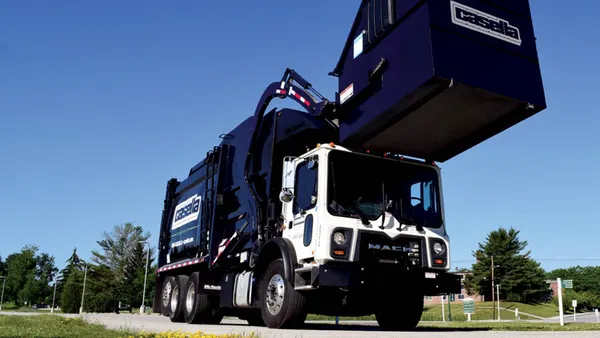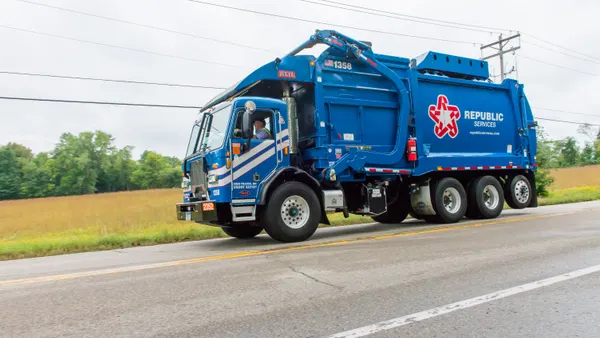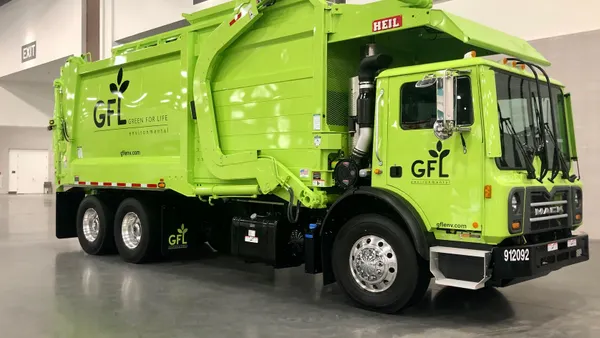UPDATE: Aug. 23, 2019: The Minnesota Supreme Court affirmed a lower court ruling on Thursday that will allow a Nov. 5 ballot referendum on St. Paul's residential waste collection system to proceed. The St. Paul City Council has a special meeting today to discuss officially placing it on the ballot.
The ruling also upheld a district court's temporary stay on suspending the collection system until election results are confirmed, hinting at more to come. "So as not to impair the orderly process of ballot preparation, this order is issued with an opinion to follow at a later date," wrote Chief Justice Lorie Gildea.
The move was taken as a victory by the collection system's opponents. While the funding mechanism could be changed by the fall vote – shifting from direct household payments to budget reserves or a property tax increase – it remains unclear whether the contract itself would be affected.
"We respect the decision from the Supreme Court and appreciate their clarity on how to proceed," said Mayor Melvin Carter in a statement, as reported by the Star Tribune and others. "The city will continue to ensure that garbage service continues uninterrupted, as we prepare for a referendum this fall.”
Dive Brief:
- The Minnesota Supreme Court will hear oral arguments today in a case that could have implications for St. Paul's "coordinated" residential waste collection system. The city is appealing a county judge's May ruling to suspend the program until it could be put up for a November ballot referendum.
- The court will potentially rule on two questions — whether referendum authority in St. Paul's charter is preempted by state statutes on waste collection and whether the city's current contract would be "unconstitutionally impaired" by a referendum.
- St. Paul Mayor Melvin Carter has vowed to continue the system under an existing contract regardless of the court's ruling, as reported by the Star Tribune. The city could do so by paying for service from budget reserves, rather than the current household-funded system.
Dive Insight:
St. Paul signed a five-year contract with a consortium of existing haulers in 2017 that divided the city up into organized zones with a variety of new performance standards. Service kicked off in Oct. 2018 for an estimated 73,000 households and has been a point of contention ever since.
Citing complaints around pricing and the inability to share carts, among other issues, certain residents have been pushing to reverse course via a ballot referendum. After the St. Paul City Council declined to recognize their petition last fall, the opponents filed a lawsuit that has now worked its way up to the state's highest court.
The initial May 30 ruling in Ramsey County directed the city to suspend the program entirely by June 30, pending a state Supreme Court decision, and allow a ballot referendum in November. That order was partially stayed after local officials said suspension would be highly disruptive, but the ballot referendum is technically still on track.
This case is the latest in an ongoing debate about the boundaries of local authority for waste policy decisions under Minnesota statutes.
Last year, the Minnesota Supreme Court ruled against a resident-led effort to stop a similar system in neighboring Bloomington. The case was remanded to the Minnesota Court of Appeals. Following further back-and-forth, it may now be heard by the state Supreme Court once again. Based on involvement in the Bloomington case, and a broader interest in preserving local authority, the League of Minnesota Cities has filed an amicus brief in support of St. Paul's current appeal.
Outside of the legal questions it raises, St. Paul's coordinated system has served as a case study in how corporate consolidation can occur even when smaller companies are given room to participate in such systems. The list of 15 haulers that were part of the Nov. 2017 consortium agreement has now shrank by more than half due to acquisitions.
The city now lists seven companies for residents to work with — including Waste Management, Republic Services and Advanced Disposal Services — and that number continues to decline. Waste Management recently bought all local routes from Pete's Rubbish and is awaiting federal regulatory approval for a full takeover of Advanced Disposal.












